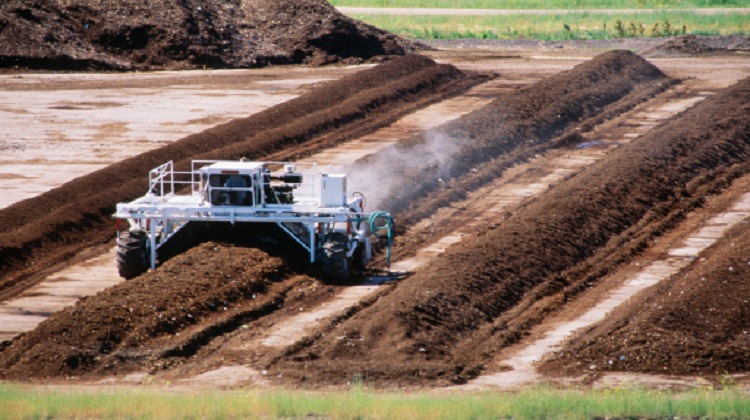
In today’s world sustainability is becoming more and more important, therefore, businesses are looking for new ways to reduce their environmental impact. One way to do this is through commercial composting, which is an environment friendly approach and also helps business financially. In this article, we’ll explore how commercial composting works and how it can benefit a business.”
Benefits of Commercial Composting
Commercial composting can provide many benefits for businesses looking to become more sustainable. Here are some of the top benefits of commercial composting:
- Reduced Waste: Commercial composting can help businesses reduce their overall waste output. This is because organic waste that would otherwise go to landfill can be diverted to a commercial composting facility.
- Reduced greenhouse gas emissions: Commercial composting can also help businesses reduce their greenhouse gas emissions. This is because organic waste decomposes in landfill, releasing methane – a powerful greenhouse gas. By diverting organic waste to commercial composting, businesses can help reduce their impact on climate change.
- Improved soil health: Composted organic matter is rich in nutrients and helps improve soil health. This can benefit businesses that rely on healthy soils for agriculture or landscaping purposes.
- Water conservation: Commercial composting can also help conserve water. This is because when organic matter decomposes in landfill, it produces leachate – a watery substance that can pollute nearby waterways if not properly managed. By diverting organic waste to commercial composting, businesses can help prevent leachate pollution.
- Cost savings: Commercial composting can also save businesses money in the long run. This is because it can lower disposal costs associated with sending organic waste to landfill. Additionally, using composted organic matter as fertilizer can save businesses money on purchasing synthetic fertilizers
How to Implement a Commercial Composting Program
When it comes to commercial composting, there are a few different approaches that businesses can take. The most important thing is to find a method that works for your company and fits your budget. Here are a few tips on how to get started:
- Decide what type of commercial composting program you want to implement. There are many different programs available, so do some research to find the one that best suits your needs.
- Work with a composting company to set up the program. They will be able to help you choose the right equipment and advise you on the best way to manage your waste.
- Train your employees on how to use the composting program. This is essential for ensuring that it runs smoothly and everyone knows what they need to do.
- Monitor the progress of your composting program and make adjustments as needed. This will help you ensure that it is running efficiently and effectively.
By following these tips, you can implement a commercial composting program that will help your business become more sustainable. Not only will you be reducing waste, but you’ll also be helping the environment by diverting organic matter from landfill sites
Tips for Making the Most Of Your Commercial Composting Program
- Start small and gradually increase the amount of compostable material you add to your program.
- Use a combination of green (food waste, yard waste) and brown (paper, cardboard) materials.
- Keep your compostable as dry as possible to prevent odor problems.
- Add oxygen to the compost pile by turning it regularly.
- Use a commercial composting system that is designed for the type and volume of waste you generate.
Common Challenges With Commercial Composting
Commercial composting can help your business become more sustainable, but there are some common challenges that you may encounter.
One challenge is finding a commercial composter that accepts the type of waste your business produces. There are many different types of commercial composters, and each has its own restrictions on what types of waste it can accept. You may need to do some research to find a composter that accepts the type of waste your business produces.
Another challenge is getting employees on board with commercial composting. If your employees are not properly trained on how to use the commercial composter, they may not be willing to use it. You will need to provide training on how to use the composter and make sure that it is easy for employees to use.
Finally, you may also face challenges with Odors from the commercial composter. If not managed properly, the commercial composter can produce odors that may be unpleasant for employees and customers. You will need to make sure that the composter is located in a well-ventilated area and that it is managed properly to prevent odors.
Alternatives to Commercial Composting
There are a number of alternatives to commercial composting that can help your business become more sustainable. One option is to use anaerobic digestion, which is a process that breaks down organic matter in the absence of oxygen. This process can be used to generate methane gas, which can be used to power generators and other equipment. Another option is to use composting, which is a process that uses worms to break down organic matter. This process can be used to create a nutrient-rich soil amendment that can be used in gardens and landscaping. Finally, you can also consider using home composting systems, which are designed for households and small businesses. These systems typically use kitchen scraps and yard waste to create compost, which can then be used in gardening and landscaping.
Conclusion
As we’ve seen, commercial composting is an effective and easy way to reduce your business’s carbon footprint. Not only will it help you create a more sustainable workplace, but it can also lead to cost savings in the long run. With so many benefits for businesses of all sizes, it makes sense to start incorporating commercial composting into your operations as soon as possible. So what are you waiting for? Start composting today and help make the world a greener place!






